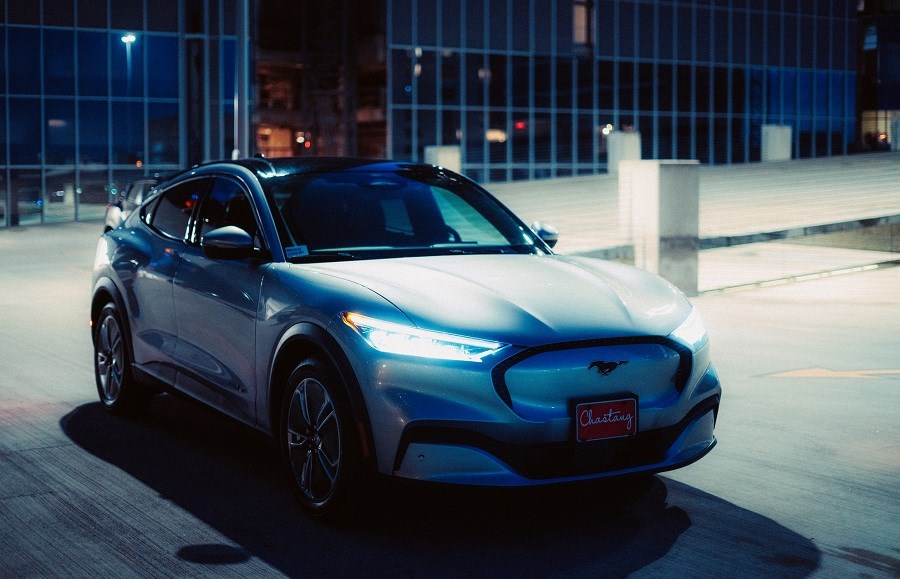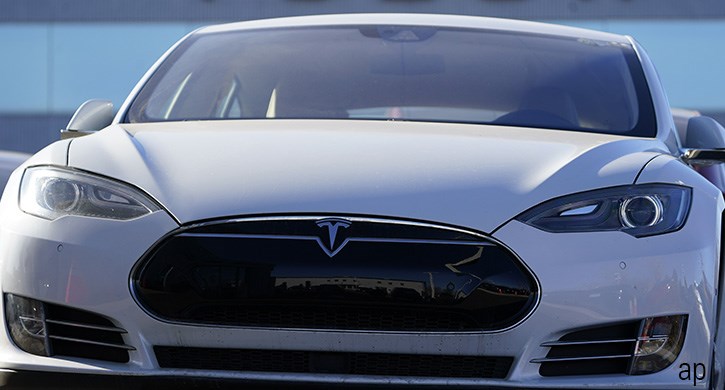The move triggered a selloff that saw many auto stocks suffer a double-digit drop over the past couple of weeks, as of August 19. However, Morningstar equity analyst David Whiston argues, on a year-to-date basis, automakers have held up reasonably well despite the bad news. He considers “any sell-offs because of the chip shortage to be a buying opportunity for long-term investors.”
The following legacy automakers are well equipped to withstand short-term headwinds from chip shortages. They are also well placed to benefit from the intensifying EV trend and the auto market rebound in 2022, which Whiston says “will be a strong year [when] the industry will return to [seasonally adjusted annualized selling rate of] over 17 million units.”
|
Toyota Motor Corp ADR
|
| |
Ticker
|
TM
|
| |
Current yield:
|
2.54%
|
| |
Forward P/E:
|
10.47
|
| |
Price
|
US$168.98
|
| |
Fair value:
|
US$174
|
| |
Value
|
Fairly valued
|
| |
Moat
|
None
|
| |
Moat Trend
|
Negative
|
| |
Star rating
|
***
|
|
Data as of Aug 19, 2021
|
Japanese auto juggernaut, Toyota (TM) sold nearly 10 million units sold in fiscal 2021. The automaker’s vehicle brands include Toyota, Lexus, Daihatsu, and truck maker Hino. Toyota boats 52% market share in Japan and 15% in the U.S.
Toyota has been hobbled by the ongoing auto chip shortage stifling automobile production. “The duration of the [chip] shortage and COVID-19 shutdowns in Malaysian chip plants have finally proved too much for even Toyota,” says a Morningstar equity report, alluding to the firm’s recent decision to shutter several manufacturing plants worldwide, including 14 Japanese units.
However, given Toyota’s robust balance sheet, the current chip crunch will not cause any long-term damage to the company. “We consider any prolonged sell-off of Toyota’s stock to be a buying opportunity for patient investors,” asserts Morningstar sector strategist, David Whiston, who recently raised the stock’s fair value from US$169 to US$174, prompted by higher profit projections for 2022 and 2023.
The deeper the production cut in 2021, the stronger the volume recovery “for all automakers once the chip shortage ends in 2022 or perhaps 2023,” Whiston assures.
The company also has a sharp focus on the transformative trends in the auto industry. “Toyota is thinking about the future with its Monet autonomous vehicle services joint venture with SoftBank and its battery joint venture with Panasonic,” Whiston says.
|
Volkswagen AG ADR
|
| |
Ticker
|
VWAPY
|
| |
Current yield:
|
2.57%
|
| |
Forward P/E:
|
6.27
|
| |
Price
|
US$22.78
|
| |
Fair value:
|
US$40
|
| |
Value
|
42% discount
|
| |
Moat
|
None
|
| |
Moat Trend
|
Negative
|
| |
Star rating
|
*****
|
|
Data as of Aug 19, 2021
|
German auto giant, Volkswagen (VWAPY) owns several popular and prestigious brands including Volkswagen, Audi, Bentley, Bugatti, Lamborghini, Porsche, and Skoda.
The automaker’s stock sank recently on the news that it may need to cut production forced by the semiconductor shortage. Reportedly, the company may ramp up production in the second half of the year which could help make up for the production shortfall.
“Management forecasts 2021 group revenue and passenger vehicle revenue to be significantly higher than the prior year,” says a Morningstar equity report, but points out the company slightly lowered volume expectations from “significantly higher” to “noticeability above” last year due to the chip shortage.
Volkswagen has been aggressively pivoting to battery electric vehicles (BEV) from internal combustion powertrains. The company plans to have 27 BEV models by 2022 and expects BEVs to account for 20% of global sales by 2025. It also plans to launch its unified battery cell strategy in 2023 that targets an 80% sales volume penetration by 2030.
A broad array of brands across multiple segments limits the firm’s reliance on any one vehicle category. “As one of the world's leading volume producers, Volkswagen's economies of scale from common platforms across a number of models enable cost savings unattainable by smaller competitors,” notes Morningstar equity analyst Richard Hilgert, who forecasts 12% consolidated revenue and 8% volume growth for 2021 and places the fair value of the company's American Depository Receipt (ADR) at US$40.
|
Nissan Motor Co Ltd ADR
|
| |
Ticker
|
NSANY
|
| |
Current yield:
|
-
|
| |
Forward P/E:
|
11.95
|
| |
Price
|
US$10.35
|
| |
Fair value:
|
US$27
|
| |
Value
|
61% discount
|
| |
Moat
|
None
|
| |
Moat Trend
|
Negative
|
| |
Star rating
|
*****
|
|
Data as of Aug 19, 2021
|
Japanese auto major, Nissan (NSANY) sells about 4 million vehicles annually. The Renault-Nissan-Mitsubishi partnership (7.8 million vehicles sales) makes the alliance the third-largest vehicle group in the world. Nissan is 43.4% owned by French automaker Renault, while Nissan, in turn, owns 15% of Renault.
The company recently bounced back from the pandemic slowdown and reported solid first-quarter 2021 earnings. While automotive revenue jumped 91% to JPY 1.74 trillion, consolidated volume rose 59% to 695,000 vehicles. Automotive operating profit was JPY 6.0 billion versus an operating loss of JPY 199.1 billion a year ago.
However, a worldwide shortage of semiconductors has impacted Nissan, just like its automobile peers that rely on chips widely used in critical systems such as power steering and parking sensors.
“Nissan expects to lose 500,000 units in the first half [of 2021] due to the chip shortage but recoup 50% of lost units in the second half,” says a Morningstar equity report.
While Nissan operates in a capital-intensive industry and suffers from stiff competition, “the company's gamble on an early move into mass-market electric vehicle technology could provide a temporary competitive advantage from having a greater amount of on-road experience,” notes Hilgert, who pegs the fair value of the company's ADR at US$27 and forecasts a 27% revenue rebound in 2021. However, he cautions that the investment cost of EV technology is high, especially in lithium-ion battery manufacturing capacity.
|
Ford Motor Co
|
| |
Ticker
|
F
|
| |
Current yield:
|
-
|
| |
Forward P/E:
|
9.93
|
| |
Price
|
US$12.70
|
| |
Fair value:
|
US$20
|
| |
Value
|
35% discount
|
| |
Moat
|
None
|
| |
Moat Trend
|
Negative
|
| |
Star rating
|
****
|
|
Data as of Aug 19, 2021
|
Ford Motor (F) makes and sells cars under Ford and Lincoln brands. The company has about 14% market share in the U.S. and nearly 7% share in Europe. North Americas and European sales account for 69% and 19.5% of auto revenue, respectively.
The recent weakness in Ford’s stock was triggered by the company’s decision to temporarily halt production at the Kansas City plant, where it makes its popular F-150 truck, due to the scarcity of chip-related auto parts, per Reuters.
However, the American auto major is well-positioned to benefit from U.S. President Joe Biden’s plan that pushes for EVs to make up half of U.S. auto sales by 2030. “The target includes battery electric vehicles and plug-in hybrids,” says a Morningstar equity report, adding that “this mirrors our thesis that the U.S. will see 30% EV adoption and 50% hybrid adoption, by 2030.
Spurred by the global push for green mobility, Ford is investing more aggressively in BEVs, “which we think is the right move to remain competitive with firms such as Tesla and GM,” says Morningstar equity analyst Seth Goldstein, who recently raised the stock’s fair value from US$17 to US$20, incorporating higher revenue growth and improved 2021 profits. Notably, Ford is increasing its autonomous and electric vehicle spending to US$37 billion through 2025, which includes US$9 billion already spent for 2016-2020.
©2021 Morningstar. All rights reserved. The information, data, analyses and opinions presented herein do not constitute investment advice; are provided as of the date written, solely for informational purposes; and subject to change at any time without notice. This content is not an offer to buy or sell any particular security and is not warranted to be correct, complete or accurate. Past performance is not a guarantee of future results. The Morningstar name and logo are registered marks of Morningstar, Inc. This article includes proprietary materials of Morningstar; reproduction, transcription or other use, by any means, in whole or in part, without prior, written consent of Morningstar is prohibited. This article is intended for general circulation, and does not take into account the specific investment objectives, financial situation or particular needs of any particular person. Investors should consult a financial adviser regarding the suitability of any investment product, taking into account their specific investment objectives, financial situation or particular needs, before making any investment decisions. Morningstar Investment Management Asia Limited is licensed and regulated by the Hong Kong Securities and Futures Commission to provide investment research and investment advisory services to professional investors only. Morningstar Investment Adviser Singapore Pte. Limited is licensed by the Monetary Authority of Singapore to provide financial advisory services in Singapore. Either Morningstar Investment Management Asia Limited or Morningstar Investment Adviser Singapore Pte. Limited will be the entity responsible for the creation and distribution of the research services described in this article.
 10 Reasons Why Japan Can Have a Great 2024
10 Reasons Why Japan Can Have a Great 2024
 End of Deflation: Is 2024 the Time to Buy Japanese Yen or Stocks?
End of Deflation: Is 2024 the Time to Buy Japanese Yen or Stocks?
 Upcoming changes to our membership offerings, tools, and features
Upcoming changes to our membership offerings, tools, and features
 Highlights from the 2025 Morningstar Fund Awards (Singapore)
Highlights from the 2025 Morningstar Fund Awards (Singapore)
.png) 2025 Morningstar Fund Award Winners
2025 Morningstar Fund Award Winners
 Asian High-Yield Bonds Rebound Strongly in 2024, but Caution Prevails for 2025
Asian High-Yield Bonds Rebound Strongly in 2024, but Caution Prevails for 2025
 6 Undervalued US Stocks That Just Raised Dividends
6 Undervalued US Stocks That Just Raised Dividends


















